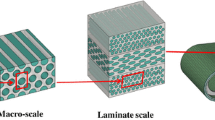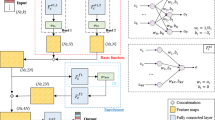Abstract
The classical finite difference methods for solving initial value problems are based on the polynomial interpolation of the unknown solution. The expected order of convergence of every classical method is fixed regardless of the smoothness of the unknown solution. However, if the local derivatives of the solution are known or can be estimated to a certain order, such information could be used to improve the order of convergence of the local truncation error and further the order of accuracy of the global error. The aim of this paper is to utilize the radial basis function (RBF) interpolation to modify several finite difference methods and thus enhance the performance in terms of local convergence. In this work, we choose multiquadric RBFs as the interpolation basis and find the conditions of the shape parameter that could enhance accuracy. The rate of convergence of each modified method is at least the same as the original one and can be further improved by making the local truncation error vanish. In that sense, the proposed adaptive method is optimal. Compared to the linear multistep methods, the proposed adaptive RBF multistep methods exhibit higher order convergence. We provide the analysis of consistency and stability with numerical results that support our claims.












Similar content being viewed by others
References
Buhmann, M.D.: Radial Basis Functions. Cambridge University Press, Cambridge (2003)
Dahlquist, G.: Convergence and stability in the numerical integration of ordinary differential equations. Math. Scand. 4, 33–53 (1956)
Ditkowski, A., Gottlieb, S.: Error inhibiting block one-step schemes for ordinary differential equations. J. Sci. Comput. 73, 691–711 (2017)
Fasshauer, G.E., Zhang, J.G.: On choosing “optimal” shape parameters for RBF approximation. J. Sci. Comput. 45, 345–368 (2007)
Fornberg, B., Weight, G., Larsson, E.: Some observations regarding interpolants in the limit of flat radial basis functions. Comput. Math. Appl. 47, 37–55 (2004)
Gu, J., Jung, J.-H.: An improved error inhibiting block one-step method with radial basis function approximation. In: Sherwin, S.J., Moxey, D., Peiro, J., Vincent, P.E., Schwab, C. (eds.) Spectral and High Order Methods for Partial Differential Equations ICOSAHOM 2018. Lecture Notes in Computational and Engineering Sciences. Springer (2020, in press)
Guo, J., Jung, J.-H.: A RBF-WENO finite volume method for hyperbolic conservation laws with the monotone polynomial interpolation method. J. Appl. Numer. Math. 112, 27–50 (2017)
Guo, J., Jung, J.-H.: Radial basis function ENO and WENO finite difference methods based on the optimization of shape parameters. J. Sci. Comput. 70, 551–575 (2017)
Larsson, E., Fornberg, B.: Theoretical and computational aspects of multivariate interpolation with increasingly flat radial basis functions. Comput. Math. Appl. 49, 103–130 (2005)
Lee, Y., Yoon, J., Micchelli, C.: On convergence of flat multivariate interpolation by translation kernels with finite smoothness. Constr. Approx. 40, 37–60 (2014)
Rippa, S.: An algorithm for selecting a good value for the parameter c in radial basis function interpolation. Adv. Comput. Math. 11, 193–210 (1999)
Sauer, T.: Numerical Analysis, 2nd edn. Pearson, New York (2012)
Schback, R.: Error estimates and condition numbers for radial basis function interpolation. Adv. Comput. Math. 3, 251–264 (1995)
Shu, C.-W.: Essentially non-oscillatory and weighted essentially non-oscillatory schemes for hyperbolic conservation laws. In: Cockburn, B., Johnson, C., Shu, C.-W., Tadmor, E., Quarteroni, A. (eds.) Advanced Numerical Approximation of Nonlinear Hyperbolic Equations. Lecture Notes in Mathematics, vol. 1697, pp. 325–432. Springer (1998)
Acknowledgements
The authors thank the anonymous reviewer for the constructive feedback. This research has been partially supported by Ajou University.
Author information
Authors and Affiliations
Corresponding author
Additional information
Publisher's Note
Springer Nature remains neutral with regard to jurisdictional claims in published maps and institutional affiliations.
Rights and permissions
About this article
Cite this article
Gu, J., Jung, JH. Adaptive Radial Basis Function Methods for Initial Value Problems. J Sci Comput 82, 47 (2020). https://doi.org/10.1007/s10915-020-01140-0
Received:
Revised:
Accepted:
Published:
DOI: https://doi.org/10.1007/s10915-020-01140-0




